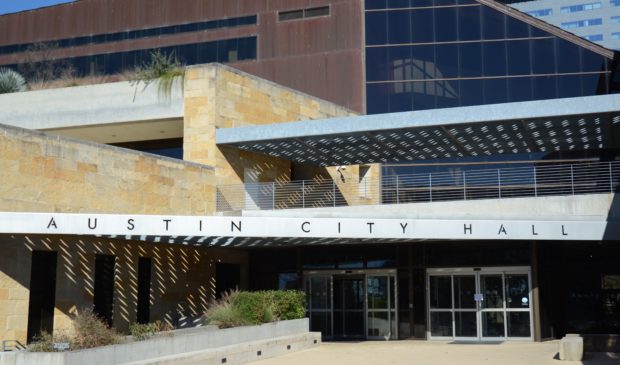New SAVES programs face uncertain funding
Wednesday, December 2, 2020 by
Jo Clifton The city has started nine programs in nine months to help local Austin businesses survive the pandemic. On Thursday, City Council will consider final program guidelines for three more programs providing relief for child care providers, local music venues and restaurants.
The city has allocated $5 million to each of these sectors: child care providers, live music venues and legacy businesses, including restaurants, arts organizations and others. Those all fit under the Save Austin’s Vital Economic Sectors (SAVES) program. Council also asked staff to find additional money to fund new programs under the Chapter 380 economic development umbrella. At this point, that money has not been identified.
At Tuesday’s work session, Veronica Briseño, who now holds the title of chief economic recovery officer in addition to her regular role as director of economic development, described additional programs for Council’s approval.
So far, the city has awarded more than $27 million to help businesses and individuals impacted by Covid-19 and the measures taken to slow the spread of the virus. Of those funds, Briseño reported, impacted businesses and organizations received more than $22 million and individuals received $4.8 million. The city has awarded $861,000 in grants to 34 live music venues.
Council approved the initial guidelines for the Save Austin’s Vital Economic Sectors fund in October. On Tuesday, Briseño described the application process for the Austin Live Music Venue Preservation Fund and the Austin Legacy Business Relief Grant, which will be under the umbrella of Chapter 380 economic development programs.
Under the Recovery Lease Incentive Program, the city will offer commercial property owners reimbursements on their property taxes in exchange for the property owner renegotiating a lower rent with eligible businesses and negotiating overdue rent payments.
The Restaurant Relief Program would offer forgivable loans to Austin-based restaurants, excepting franchises. Under certain conditions the city would defer repayment, and according to Briseño, the loans would be forgiven for companies offering more employee and community benefits.
The price tag on the two programs is estimated to be $10 million.
Businesses that meet program criteria, including need, will receive $20,000 initially and must agree to participate in a legal and financial evaluation. Those who apply for an “enhanced” grant can receive up to $40,000 a month with a limit of $140,000. The city will hire a third-party administrator to award the enhanced funding and the city will offer ongoing technical assistance to program applicants, Briseño said. If Council ultimately approves the program, applicants will be exempt from certain requirements of regular Chapter 380 programs.
Council Member Greg Casar, a strong advocate for businesses to pay a living wage, said he would be in favor of letting businesses pay less than the $15 an hour currently required under Chapter 380. He said those rules were primarily meant for large businesses moving here and using the economic development program. Casar said he had been expecting to receive an email confirming that that particular Chapter 380 requirement could be waived for businesses going through the two economic recovery programs. It would not help employees if a business were to go under because it could not meet that requirement, he said.
Casar also said he would be in favor of funding the live music venue and legacy business relief through the Fiscal Year 2021-22 budget, which does not start until Oct. 1. He said the city should expect to receive additional federal economic recovery funds before that. Council Member Natasha Harper-Madison expressed some concern about counting on federal dollars that have not been allocated, but it wasn’t clear whether the rest of Council agreed with her.
Unlike the other two programs, the Austin Childcare Provider Relief Grant has $5 million in funding. Staffers have hired United Way for Greater Austin as the third-party administrator. Briseño said she and her staff anticipate accepting applications from child care providers within the next two to three weeks.
This story has been corrected to clarify the funding for the SAVES program.
The Austin Monitor’s work is made possible by donations from the community. Though our reporting covers donors from time to time, we are careful to keep business and editorial efforts separate while maintaining transparency. A complete list of donors is available here, and our code of ethics is explained here.
You're a community leader
And we’re honored you look to us for serious, in-depth news. You know a strong community needs local and dedicated watchdog reporting. We’re here for you and that won’t change. Now will you take the powerful next step and support our nonprofit news organization?






